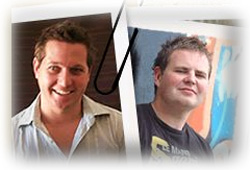
“Television, the drug of the nation / Breeding ignorance and feeding radiation,” rapped American poet and musician Michael Franti of the Disposable Heroes of Hipocrisy Hiphoprisy”, now of Spearhead. Could this literally be true?
I’ve just read the most amazing speech, Gin, Television, and Social Surplus by Clay Shirky, which you can also watch on Blip.tv. It begins:
A British historian [argued] that the critical technology, for the early phase of the industrial revolution, was gin.
The transformation from rural to urban life was so sudden, and so wrenching, that the only thing society could do to manage was to drink itself into a stupor for a generation. The stories from that era are amazing — there were gin pushcarts working their way through the streets of London.
And it wasn’t until society woke up from that collective bender that we actually started to get the institutional structures that we associate with the industrial revolution today. Things like public libraries and museums, increasingly broad education for children, elected leaders — a lot of things we like — didn’t happen until having all of those people together stopped seeming like a crisis and started seeming like an asset.
Shirky goes on to argue that when WWII ended, we suddenly had to cope with another social surplus: all that leisure time thanks to a 5-day working week and all those new-fangled gadgets which made household chores a breeze. So what did we do? We slothed in front of the TV. For a generation.
As we turn off our TVs and connect to each other, this cognitive surplus is creating things like Wikipedia. An estimated 100 million hours of work has gone into it. Yet this is but a drop in the ocean…
Continue reading “I came for the gin, I stayed for the social revolution”
![]()



